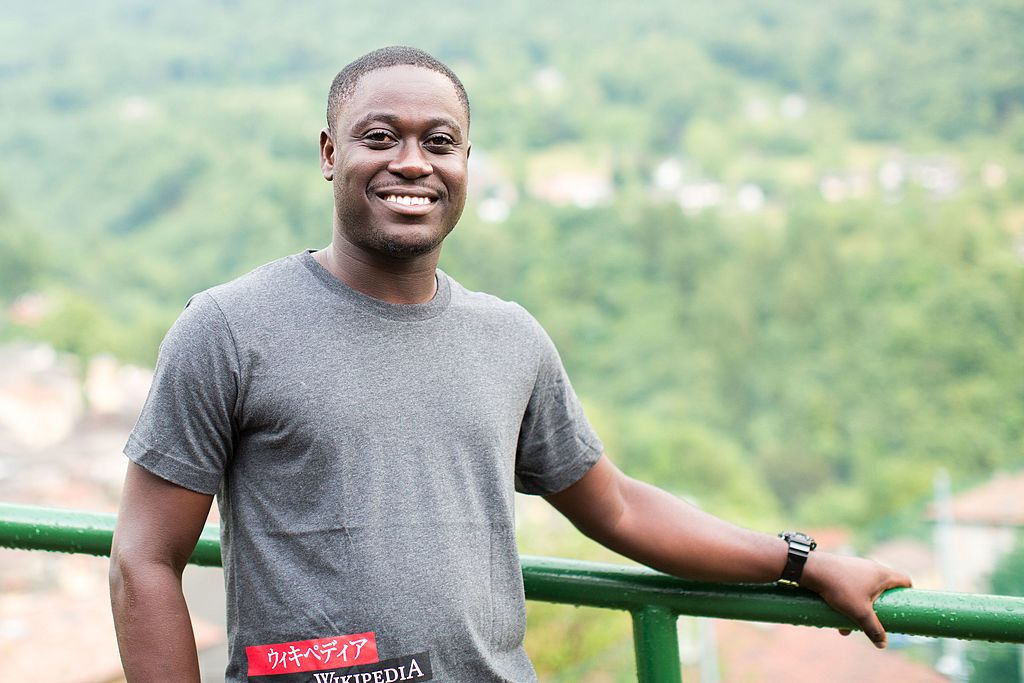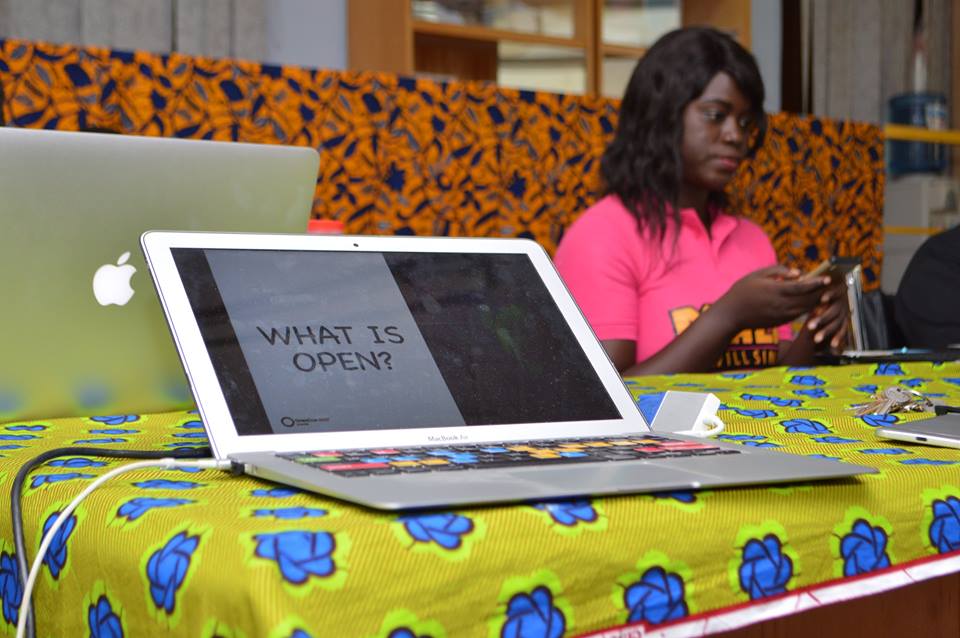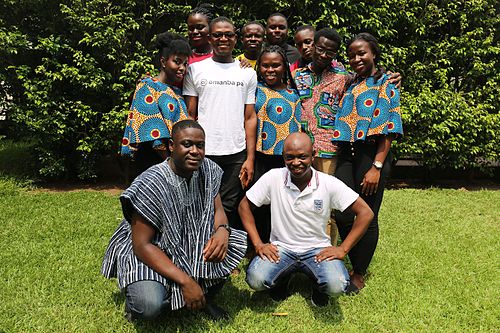Help us protect the commons. Make a tax deductible gift to fund our work. Donate today!
“Knowledge crushes all barriers”
Felix Nartey, 2017’s Wikipedian of the year, on the need for cross-collaboration in the open movement

Ruby Mizrahi / Wikimedia Foundation CC BY-SA 3.0 (https://creativecommons.org/licenses/by-sa/3.0) or CC BY-SA 3.0 (https://creativecommons.org/licenses/by-sa/3.0), via Wikimedia Commons”
Felix Nartey is the Global Coordinator for the Wikipedia Library and has been a Creative Commons advocate since 2014. In advance of the Creative Commons Global Summit, we’re gathering the stories of inspiring humans working around the world to shape the Commons’ future. We want to share your story, too — drop by the “Humans of the Commons” listening lounge at the Summit to get interviewed and add your voice. Here’s an edited transcript of Felix’s story:
One of my major goals is cross-collaboration in the open movement. I’ve realized that there isn’t enough cohesion between the different programs and individual projects that exist here in Ghana and elsewhere. We need a coalition.
Last year I spoke at the OpenStreetMap “State of the Map Africa” conference, for example, to propose closer collaboration between OpenStreetMap and Wikipedia. Wikipedia is the most notable website in the world — so why not continue the work we do with OpenStreetMap by adding map data to locations that already exist on Wikipedia?

Photo by Open Foundation West Africa CC BY-SA
I created the Summer Open School for the same reason: to bring projects together and do trainings that combine Creative Commons, OpenStreetMap, Mozilla and other open projects. When people learn about Creative Commons, for example, they also learn about Wikipedia in the process, and vice versa. You can’t talk about these other projects without mentioning the underlying licenses. It creates continuity for our work, and allows more people to see it. These are ways that Creative Commons can push the agenda.
Some of our students have gone to their schools and instituted programs or set up open collaborations and conferences. We want to extend this further to the West African sub-region, and expand Summer Open School to the whole of that area.
Growing Creative Commons in Ghana
Four years ago I learned about the open movement. I wanted to increase knowledge-sharing and improve education in my country. I use this platform [the open movement] because it’s an opportunity to tell my story and the story of my country through sharing.
We started our CC Ghana group through Open Foundation West Africa, an NGO that supports the open movement in the West African sub-region. We’re nearly finished the process of becoming a Creative Commons chapter in Ghana.
As a result of our work here in Ghana, I’ve seen companies adopt Creative Commons licenses on their websites. I’ve seen schools change their policies for printing research work using Creative Commons licenses. And I’ve spoken to teachers creating publications under CC licenses so their students will have access. They’ve realized it doesn’t make sense to publish their works in publications students won’t be able to access.
Knowledge without barriers
I think a vibrant Commons and a better world are directly related. When you improve collaboration and access, because content can be shared, you directly improve knowledge. The more knowledge people have, the more they can do. Without factors like the Commons, there’s no continuity and there’s no creativity. The world just stands still and nothing grows.
For me, knowledge crushes all barriers. I want to see a Ghana that is free from knowledge barriers, because once those barriers are crushed, people will begin to move freely, learn freely, and grow. Once we begin to open up knowledge for people, the barriers that exist – being able to buy textbooks, for example – can be solved with things like open educational resources.
My interest is focused on Ghana but I’m also referring to the African continent more broadly. I feel we are under-represented. Most of our knowledge resides in books, and our people just don’t know how to put it online – whereas everything you’d want to know about the U. S., for example, already exists there.
We need to give people the training and knowledge that they have a voice through platforms like Creative Commons licenses and Wikipedia. We have a voice, we just don’t know how to use it.
Based on a StoryEngine.io interview with Felix Nartey. Interview by Christine Prefontaine, story by Matt Thompson.
Posted 28 March 2018